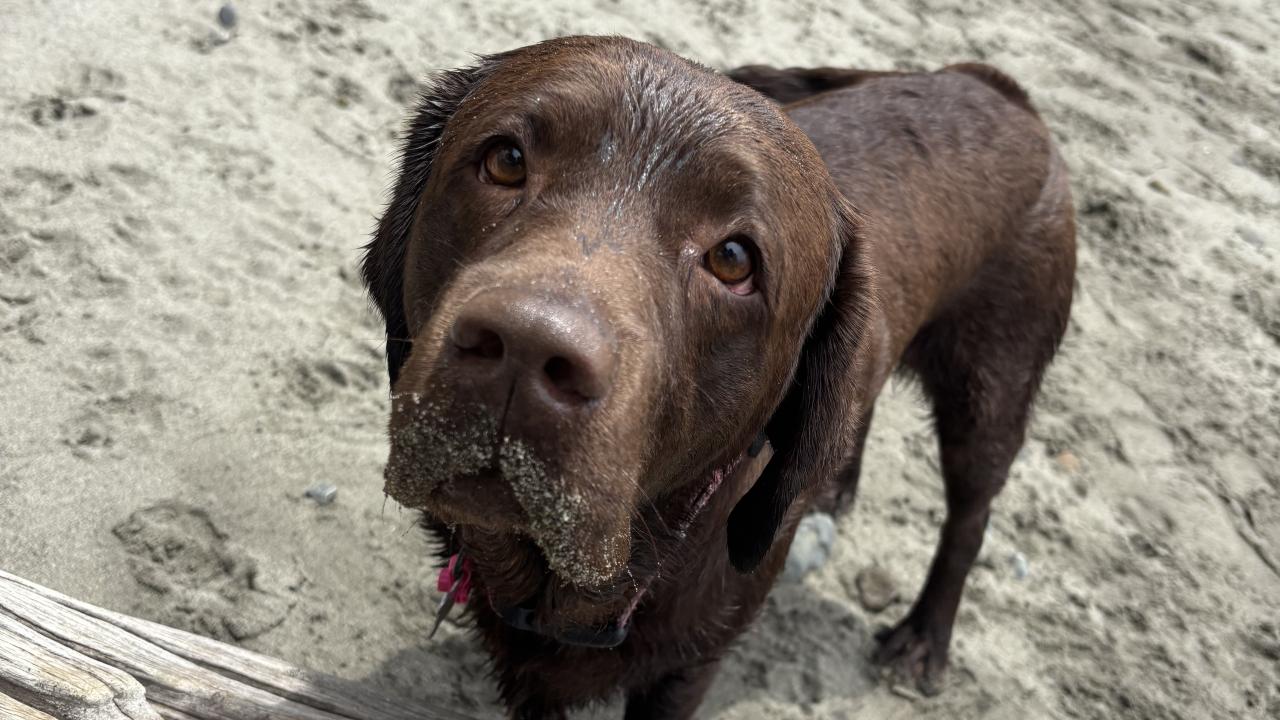Labrador undergoes chemotherapy for mammary carcinoma
Female dogs are at a higher risk of developing breast cancer than women.
The University of California, Davis (UC Davis) School of Veterinary Medicine recently spotlighted the case of Snickerdoodle, a 5-year-old English Labrador retriever who was diagnosed with mammary, or breast, carcinoma last year after having a litter. After undergoing 5 rounds of chemotherapy at the UC Davis William R. Pritchard Veterinary Medical Teaching Hospital (VMTH), Snickerdoodle is now doing well and is back to herself, UC Davis said in a report.1

Snickerdoodle was initially diagnosed by her primary veterinarian, who performed surgery for the removal of the mammary mass and conducted a spay procedure. According to UC Davis, the histopathology report noted that the tumor was malignant, but no signs of metastasis were found at that time.
Still, Snickerdoodle was referred to the medical oncology service at the UC Davis VMTH to be further evaluated and receive potential follow-up treatment. Despite continuing to show no signs of metastasis in her lungs or abdomen during her first appointment at the hospital, Snickerdoodle’s oncologists recommended she undergo multiple chemotherapy treatments.
The goal was to reduce the risk of developing metastasis later in life and prolong survival time. “She may still develop metastasis later in life if there [is a] trace number of cancerous cells in her mammary tissue,” UC Davis wrote, explaining why Snickerdoodle underwent the chemotherapy treatment.1
The English Labrador retriever completed 5 rounds of chemotherapy over the course of 10 weeks. Chest x-rays were taken after the treatment was completed and showed no evidence of metastasis.

“Her veterinary team will continue to monitor her going forward. Snickerdoodle’s family is thrilled to report that she is doing wonderfully and is back to her happy, playful self,” UC Davis wrote.1
Mammary carcinoma is the most common type of cancer in unspayed female dogs. According to the Cornell University College of Veterinary Medicine, female dogs are at a higher risk of developing breast cancer than women. These animals face a lifetime risk of 23% to 34%,2 whereas their human counterparts have a 12.4% lifetime risk.2
“Snickerdoodle was an absolute champ throughout her journey, showing incredible strength and resilience,” Snickerdoodle’s owner, Julia, said.1 “Her wagging tail and bright eyes are a testament to the incredible care she received from the dedicated team at UC Davis.”
According to UC Davis, Snickerdoodle was able to receive the treatment through a grant from the Petco Love Foundation and the Blue Buffalo Foundation, which supports treatments for companion animals with cancer. The initiative helps pet owners facing financial hardship and those caring for animals who provide services to others.
References
- Warren R. Thanks to cancer treatment grant, UC Davis patient receives vital follow-up care. UC Davis School of Veterinary Medicine. October 16, 2025. Accessed October 21, 2025. https://www.vetmed.ucdavis.edu/news/thanks-cancer-treatment-grant-uc-davis-patient-receives-vital-follow-care
- Mammary cancer. Cornell University College of Veterinary Medicine. Accessed October 21, 2025. https://www.vet.cornell.edu/departments-centers-and-institutes/riney-canine-health-center/canine-health-information/mammary-cancer
